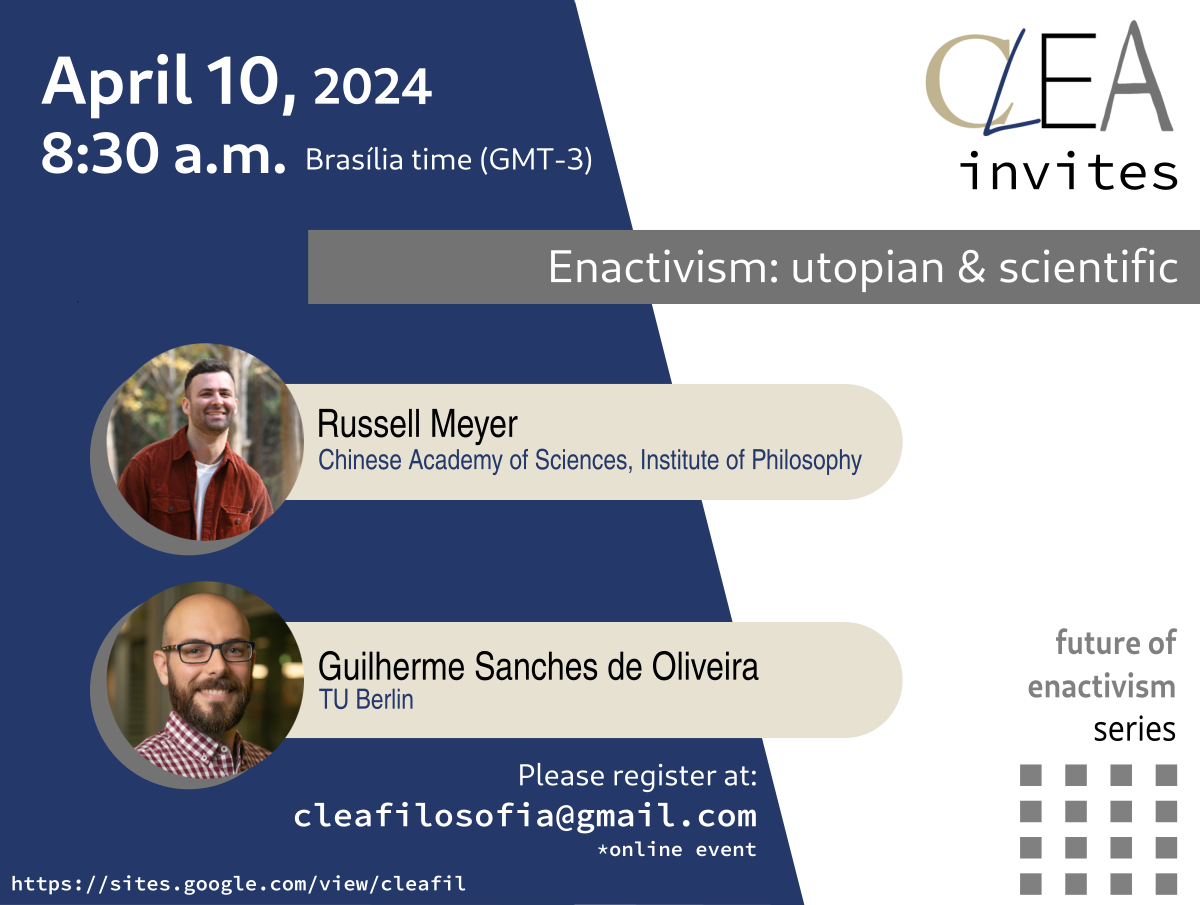First session of the online series “The Future of Enactivism”, in which researchers from all over the world discuss key issues and problems within the enactivist research program. The session was held on April 10 2024, and featured Russell Meyer (Chinese Academy of Sciences, Institute of Philosophy) and Gui Sanches de Oliveira (TU Berlin) discussing the distinction between “utopian” and “scientific” enactivism.
Series
The Future of Enactivism
Speaker
Russell Meyer (Chinese Academy of Sciences - Institute of Philosophy)
Commentator
Guilherme Sanches de Oliveira (TU Berlin)
Paper
Enactivism: Utopian & Scientific
Abstract
Context: Our target article concerns the direction and growth of enactivism, a framework portrayed as a revolutionary shift in understanding cognition. While enactivism continues to be a lively position, it is unclear how its contributions relate to the cognitive sciences. Despite some empirical successes, enactivism remains somewhat insulated as a theoretical position and as a research program. Problem: There exists a discrepancy between enactivist aims and delivery. The basis of this problem, we argue, is that the overall objective of enactive theorising is not clear, which has led to diverging strategies for implementation and integration with the cognitive sciences. Method: We review contributions from different strains of enactivism - autopoietic, sensorimotor and radical - and their research goals, both tacit and explicit. We show that enactivism is productively understood as two projects we term utopian enactivism and scientific enactivism. Utopian enactivism aims to develop a philosophically defensible lens through which cognitive science is to be viewed. Scientific enactivism intervenes in scientific practice by contributing to the implementation of enactive ideas. Results: Once disentangled, the utopian and scientific projects have important but independent tasks. Utopian enactivism is useful for building a coherent and defensible enactive philosophy of nature, while scientific enactivism is free to draw upon and contribute to non-enactive approaches in the cognitive sciences. Implications: We aim to motivate discussions that will enhance enactivism’s progress, and our reappraisal also offers a clear and explicit roadmap for renewing advances in enactivist philosophy and cognitive science. Constructivist content: We directly engage with the work of Humberto Maturana and Francisco Varela to advance their project.
DOI
https://constructivist.info/19/1/001.meyer
